 Carter Horsley
Carter HorsleyMay 15, 2018
Carter's Review
This very impressive, pre-war complex at 504 Cathedral Parkway in Morningside Heights was erected in 1909 and converted by Aaron Ziegelman and William K. Langfan to 148 condominium apartments in 1984.
Its two 12-story buildings were designed by Schwartz & Cross and developed by the Carlyle Realty Co.
There are within the Morningside Heights Historic District and are convenient to the Cathedral Church of St. John the Divine and Columbia University, Central Park and mass transit.
Bottom Line
Two very handsome 1909 apartment buildings in Morningside Heights were combined very gracefully and almost imperceptibly into one in 1984 and converted to 148 condominiums leading to the renaissance of one of the city's most attractive residential streets.
Description
The complex combines two Secessionist style buildings: the Amherst, which was originally known as 504 Cathedral Parkway; and the Cortlandt, which originally was known as 510 Cathedral Parkway.
Landmarkwest.org provides the following commentary about the complex:
"The tripartite façade features a rusticated stone base with elaborate entrance surrounds (now altered), brick laid in Flemish bond, full width metal-railed and balustraded balconies at the fourth and 11th stories respectively, paired bays of balconettes with sash or French windows offset by multi-story terra-cotta piers with elaborately carved corbels, capitals and pediments and segmental-arched fenestration with brick rowlock lintels with terra-cotta keystones and decorative brickwork spandrels characteristic of the style. Of additionarl interest are the metal balcony railings and the possibly historic metal grilles found in the former entrances. The two buildings have been combined internally and converted to a condominium."
The website also notes the following alterations to the complex:
"Cathedral Parkway façade: Base painted; brick repointed; historic entrances converted into windows and new combined entrance created; granite water table; canopy; windows replaced; raised sills and partially infilled window openings date from before 1981; lights and cameras with conduits; basement window altered with vent and grille...."
The building, which has a roof-top watertank, has a three-story, rusticated limestone base and a broad bandcourse balcony above the third story. Broad limestone pilasters rise from the fourth through the ninth floor and the top three floors have limestone decorations.
The building permits window air-conditioners.
Amenities
The building has a 24-hour doorman, a live-in superintendent and a bicycle room.
Apartments
Apartment 8F is a one-bedroom unit with a 12-foot-long, open kitchen with an island at the entrance and a 13-foot-long living room.
Apartment 3E is a one-bedroom unit with an 8-foot-long entry foyer that leads to a 15-foot-long hall that leads to a 16-foot-long living room with an enclosed and windowed kitchen.
History
A May 5, 1985 article by Kirk Johnson in The New York Times noted that these converted buildings "are distinguished from their neighbors on the block by a new shared lobby and a 24-hour doorman - the only one on the block."
The buildings, the article continued, "have also been distinguished by a surprisingly strong demand for condominium housing in this long neglected and still partly blighted section of Manhattan....Many tenant buyers at the block's first conversion have seen the value of their apartments double since they bought earlier this year. Insider prices were about $60,000 then for a typical one-bedroom in the two buildings. Outsiders are now paying upwards of $120,000 for unrenovated apartments, some of which still have peeling paint, rotting window frames and cracked wooden flooring."
The article noted that creating a new lobby "absorbed more than $600,000 of the near $1.5 million spend on the two buildings" and "under a buyout program, 12 tenants were paid between $10,500 and $26,000 to vacate their apartments, which were then sold."
"Mr. Ziegelman raised the reserve fund to a total of $700,000, from the previous statutory minimum of $280,000, in return for an assurance that at least 40 tenants would buy their apartments. Sixty-six of them subsequently purchased," the article added.
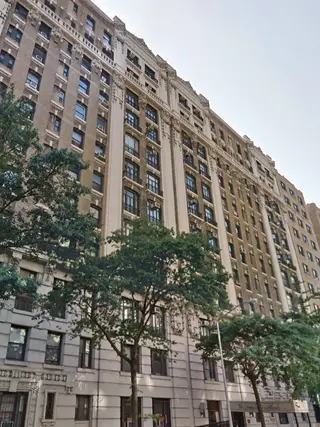
- Condo built in 1909
- Converted in 1987
- 2 apartments currently for rent ($3.4K)
- Located in Broadway Corridor
- 148 total apartments 148 total apartments
- 10 recent sales ($395K to $725K)
- Doorman
- Pets Allowed

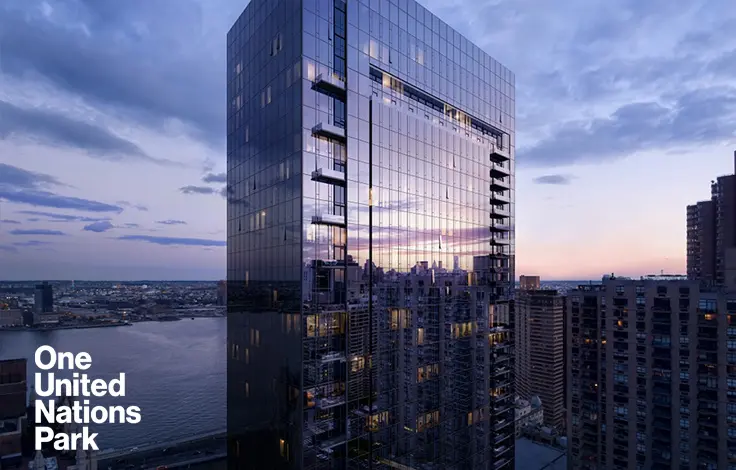
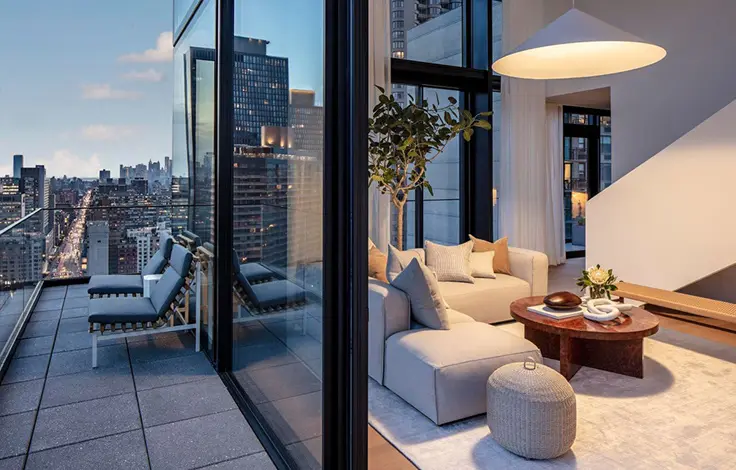
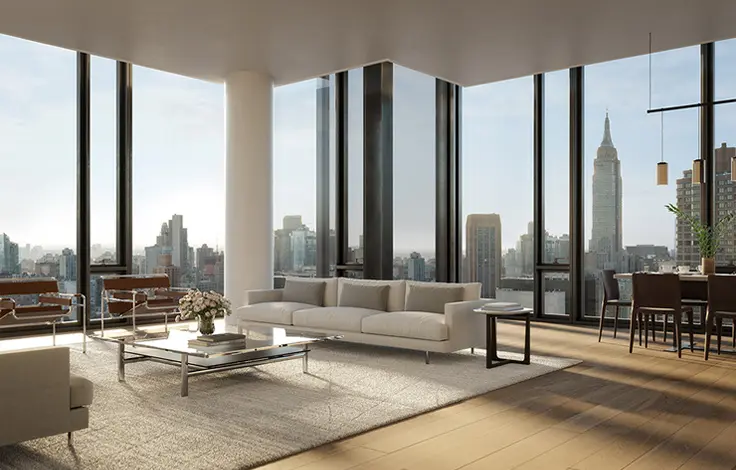

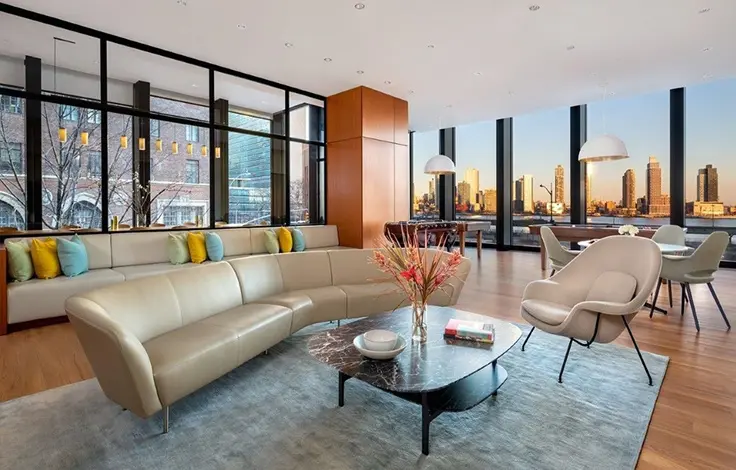
 6sqft delivers the latest on real estate, architecture, and design, straight from New York City.
6sqft delivers the latest on real estate, architecture, and design, straight from New York City.
